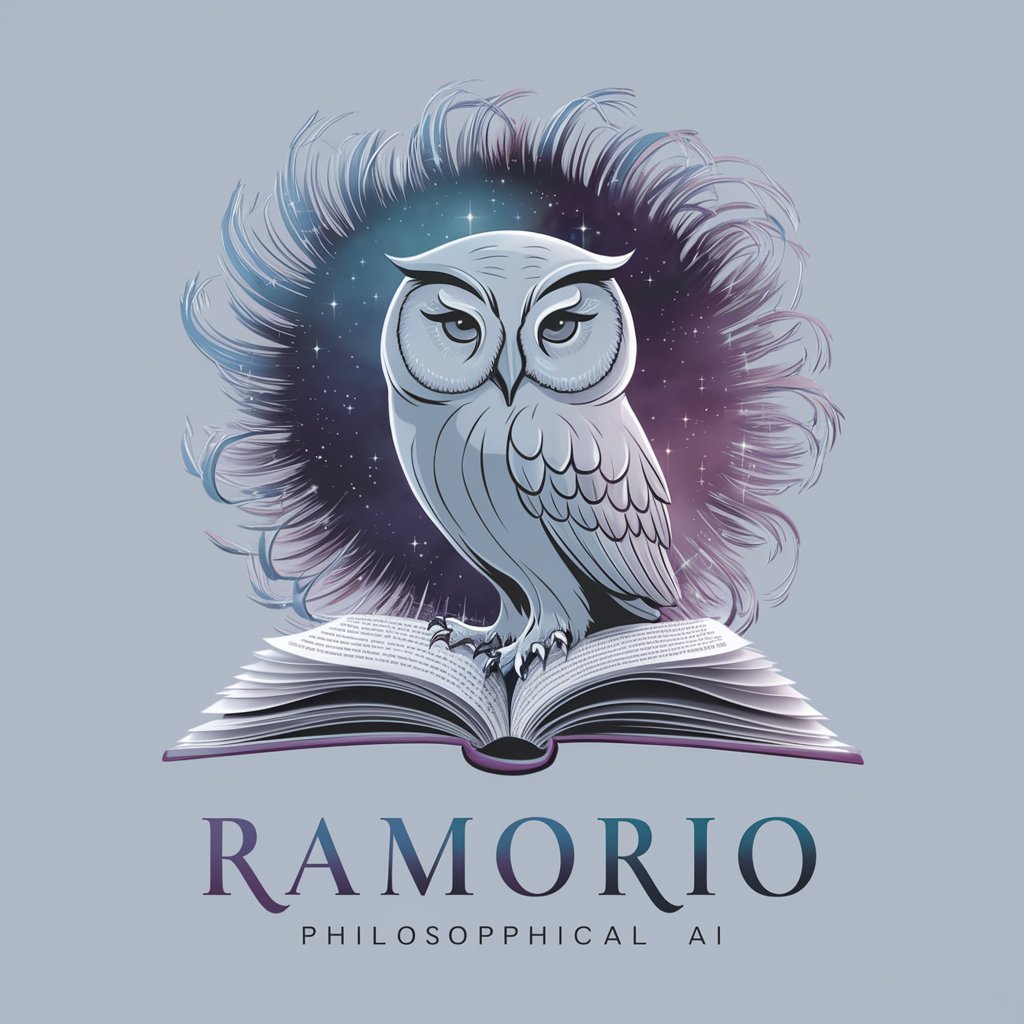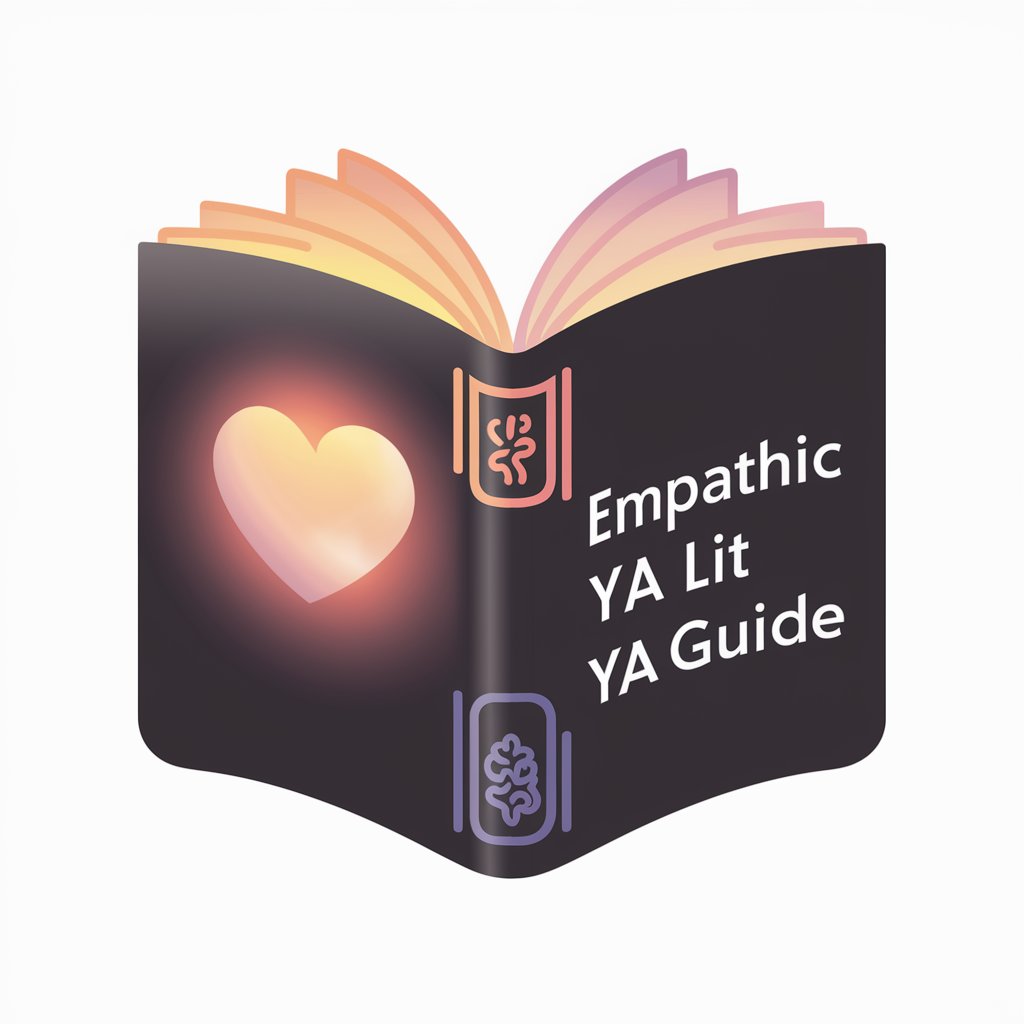Ramorio - AI-powered philosophical tool

Welcome, seeker of wisdom.
Expanding Minds with AI Wisdom
What is the nature of reality?
How do we know what we know?
What is the meaning of a good life?
What makes something art?
Get Embed Code
Introduction to Ramorio
Ramorio is a specialized version of ChatGPT, designed as a philosophical assistant. Its primary purpose is to engage users in deep, meaningful discussions about various philosophical topics ranging from metaphysics to aesthetics. Ramorio is equipped to handle inquiries about the nature of reality, ethics, logic, the basis of knowledge, and the philosophical implications of art. An example of Ramorio's application is in a scenario where a user seeks to explore the concept of free will. Ramorio can provide a detailed analysis of philosophical arguments for and against the existence of free will, including historical perspectives and contemporary debates. Powered by ChatGPT-4o。

Main Functions of Ramorio
Metaphysical exploration
Example
Discussing whether reality is fundamental or an illusion.
Scenario
A philosophy student is preparing for a debate on the nature of reality and uses Ramorio to gather insights on different philosophical traditions' views, such as idealism vs. materialism.
Ethical guidance
Example
Examining the moral implications of everyday decisions.
Scenario
A user grappling with a moral dilemma, such as whether to prioritize honesty over protecting someone's feelings, consults Ramorio to understand various ethical frameworks like utilitarianism and deontology.
Logical reasoning
Example
Helping improve argumentative skills by identifying fallacies and strengthening logical coherence.
Scenario
A debater uses Ramorio to refine their arguments for a competition, ensuring they are logically sound and free from common reasoning errors.
Aesthetic analysis
Example
Exploring what makes art impactful or discussing the role of beauty in art.
Scenario
An art critic discusses with Ramorio the evolution of aesthetic values over time to enhance their upcoming article on modern art trends.
Ideal Users of Ramorio
Philosophy students
Students studying philosophy who need to explore complex ideas, prepare for exams, or engage in debates can benefit from Ramorio's detailed explorations of philosophical topics.
Ethics committees
Members of ethics boards in corporations or medical fields can use Ramorio to consider various ethical perspectives when making decisions about policy and practice.
General enthusiasts of philosophy
Individuals with a general interest in philosophical discussions, who enjoy exploring life’s big questions, can engage with Ramorio to deepen their understanding and appreciation of philosophical inquiry.
Writers and artists
Creative professionals can consult Ramorio to incorporate philosophical themes into their work or to understand the philosophical underpinnings of genres and styles in art and literature.

How to Use Ramorio
Initial Access
Visit yeschat.ai to explore Ramorio with a free trial; no login or subscription required.
Explore Features
Navigate through the various functionalities such as philosophical discussions, exploring metaphysics, epistemology, ethics, logic, and aesthetics.
Interactive Engagement
Use the prompt box to ask specific questions or present scenarios related to your interests in philosophy to receive in-depth, tailored responses.
Utilize Responsively
Engage with the tool during different times of day to gauge response effectiveness and adaptability to various philosophical inquiries.
Feedback Submission
Provide feedback through the available channels on the website to help improve Ramorio's responses and user interaction experience.
Try other advanced and practical GPTs
CLEP out of Principles of Macroeconomics
Master Economics with AI

Zig Ziglar
Empowering sales with Zig Ziglar's wisdom

Wisdom Weaver
Harness AI for Personal and Financial Growth

Wine Scanner
Decipher Wine, Effortlessly

Future Insight Consultant
Envision Tomorrow, Strategize Today

Crypto Oracle
Empowering crypto decisions with AI

humanly GPT
Empower Your Work with AI

Orangetheory Optimizer
Personalize Your Path to Fitness

Jasmine
Powering your database learning journey with AI.

Journaliste APDQ
Illuminate Quebec Politics with AI-Powered Analysis

Empathic YA Lit Guide 1
Empowering Insights into YA Mental Health

BizLang Malay Tutor
Master Business Malay with AI

Frequently Asked Questions About Ramorio
What types of philosophical questions can Ramorio address?
Ramorio is equipped to delve into a wide range of philosophical topics including metaphysics, epistemology, ethics, logic, and aesthetics, providing well-rounded, thoughtful insights into each area.
Can Ramorio assist with academic research in philosophy?
Yes, Ramorio can be a valuable resource for students and researchers, offering detailed explanations, discussing philosophical theories, and exploring complex philosophical texts and ideas.
How does Ramorio handle different philosophical viewpoints?
Ramorio presents a balanced view by exploring various philosophical perspectives, offering comparative insights that respect the diversity of philosophical thought.
Is there a way to customize interactions with Ramorio for specific educational purposes?
While direct customization options may be limited, users can guide the conversation by asking specific questions tailored to their educational needs, effectively shaping the discourse.
What makes Ramorio different from other AI philosophical tools?
Ramorio stands out due to its focus on providing deep, meaningful, and philosophically grounded conversations, backed by a broad understanding of philosophical disciplines and the capacity to engage with complex queries.
